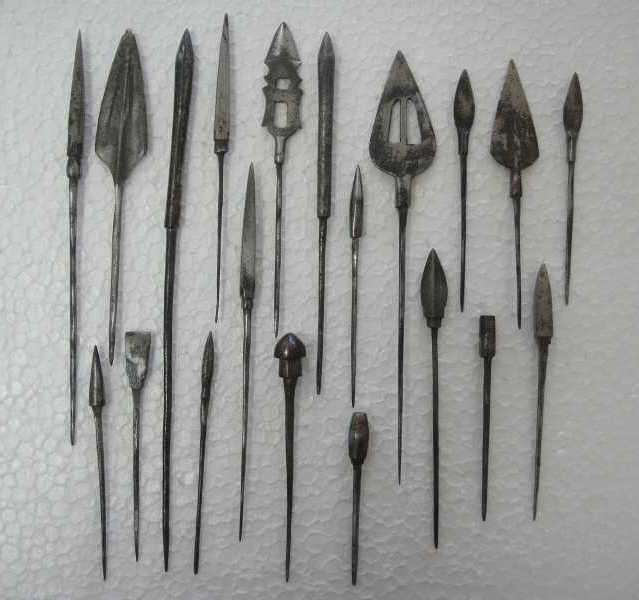FWP:
BHI verses: {6,5}*; {6,7x}; {9,6}; {15,13}; {36,5};
{36,9}**, well illustrated; {61,8}*; {77,1}*;
{78,5}; {90,4};
{99,5}; {108,7};
{110,7}*; {111,2}*; {112} (in refrain); {116,5}*; {123,4};
{124,7}*; {129,2};
{131,2}; {132}* (in refrain); {134,1}; {136,1};
{138,5}; {140,7x}; {142,2}*; {143,5};
{147,1}; {148,4}; {148,9}*;
{150,1}, exclamatory?; {151,4}; {153,3};
{153,9}; {154,4}*;
{157,2}; {158,5}, exclamatory; {162,3}; {173,4}, exclamatory? ; {175,1}; {177,1};
{179,3}; {202,6};
{210,7}; {221,2}*; {224,1};
{230,9}; {231,6}; {232,9}, on its idiomatic
complexities; {413x,6}
This one is a classic, and plays perfectly on the two meanings of bhī , 'too' and 'even'. Ghalib was keenly aware of the importance of small but powerful particles like bhī , as Hali's anecdote above amusingly shows.
On the first reading (2a), if the beloved didn't come near the lover, that was all right, because after all she had one or another, 'some' [kind of] [koʾī] arrow 'too' in her quiver, and thus could shoot him-- or 'them'-- from afar. But because she is mischievous, she might or might not actually loose the arrow on her helpless prey. This is the meaning the commentators adopt.
On the second reading (2b), the lover has no illusions about the radical nature of the beloved's mischievousness-- did she 'even' bother to bring any arrows in her quiver, or was that too much trouble? This reading rests on the possibility of a yes-or-no question with the introductory kyā colloquially omitted; see the next verse, {36,10}, for an irrefutable example of the same usage.)
For a thematically very similar verse in which bhī is not made to do such tricks, but only means 'even', see {112,9}. Then for a verse in which bhī means only 'also', see the one after it, {112,10}.
For discussion of nah sahī , see {9,4}.

Hali:
The late Hakim Razi ud-Din Khan was an extremely close friend of Mirza's. He didn't care for mangoes. One day he was seated in the verandah of Mirza's house, and Mirza was there as well. A donkey-driver passed through the lane with his donkey. Some mango-skins were lying there; the donkey took a sniff, then left them. The Hakim Sahib said, 'Look-- a mango is such that even a donkey [gadhā bhī] doesn't eat it!' Mirza said, 'Without a doubt, a donkey doesn't eat it.'
==Urdu text: Yadgar-e Ghalib, p. 70